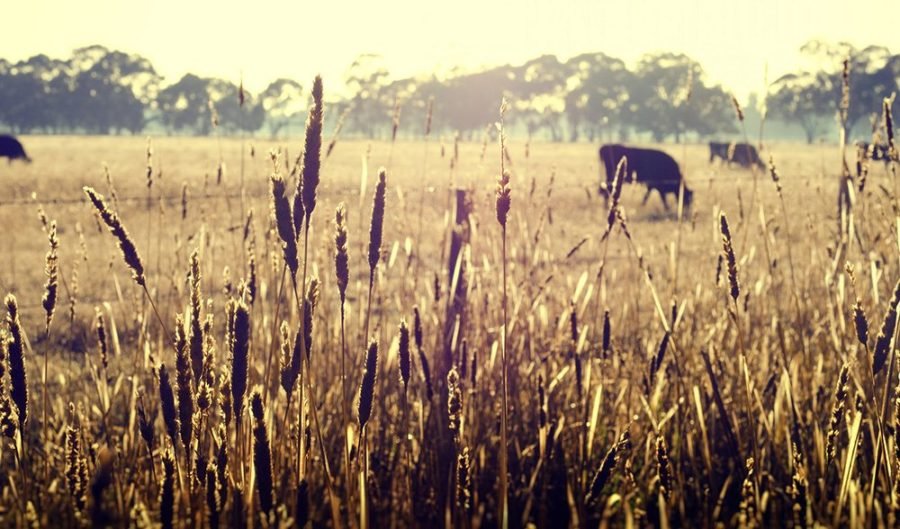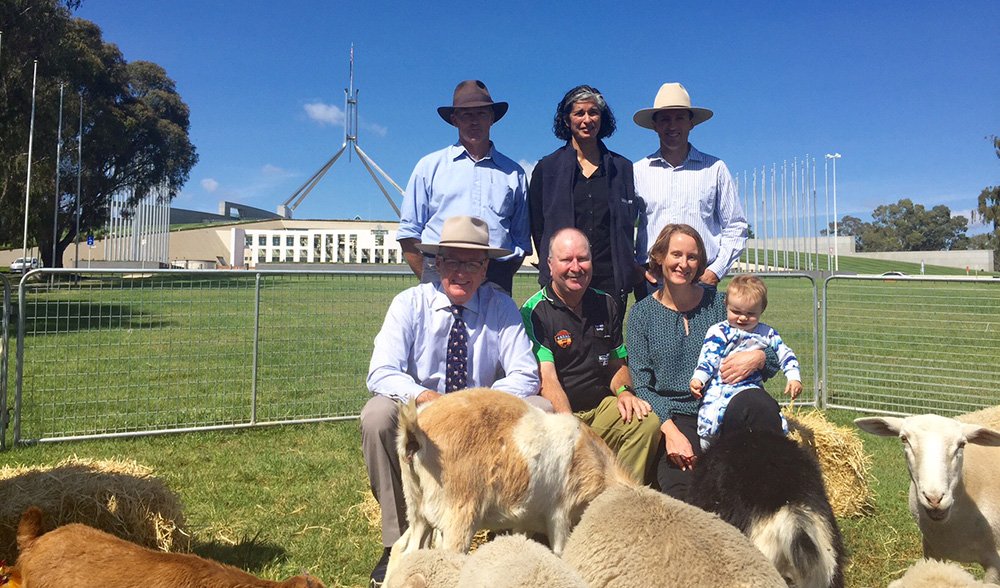Eight in 10 Aussie farmers want more action on climate change

IN SEPTEMBER THIS year, Farmers for Climate Action launched a survey, asking farmers around Australia to share their experiences of and attitudes towards climate change.
The results were announced today, and they’re resounding – of the 1338 farmers that completed the survey, two-thirds said they have observed changes in rainfall patterns during their lifetime, and almost half reported more intense droughts, floods or heatwaves.
Eight in 10 said they want to see their agricultural sector representatives do more to advocate for stronger action on climate change, and 88 per cent said they’d like to see their political representatives doing more.
On Monday and Tuesday this week, a delegation of six farmers representing Farmers for Climate Action personally presented the findings to the National Farmers Federation (NFF) and MPs in Canberra.

Farmers for Climate Action delegates presented the findings in Canberra this week. Pictured, back row from left: Glenn Morris (beef cattle farmer, Inverell, NSW); Karinjeet Singh-Mahil (dairy farmer, Crossley, VIC); Derek Blomfield (beef cattle farmer, Liverpool plains, NSW). Front from left: Peter Holding (mixed crop and sheep farmer, Harden, NSW); Greg Dennis (dairy farmer, Beaudesert, QLD); and Christie Kingston (merino wool and grains, WA) with Robbie Rose, aged 14 months. (Image: supplied)
“A lot of farmers have been whispering about the changes they are seeing on their farms, but it’s time we started shouting as this spells trouble. Australia is one of the most exposed industrialised countries to climate change, and agriculture is one of the most vulnerable industries,” said Derek Blomfield, who farms beef cattle on the Liverpool Plains on the north-western slopes of NSW.
“What came out clearly in the survey is there’s a huge willingness among farmers to do more, but they need industry and government support to take the necessary steps. Switching to 100 per cent renewable energies, like solar, bio and wind, will bring huge benefits to rural and regional communities, and farmers also have real opportunities through innovative practices that store carbon back in their soils,” he said.
“This combination can cut emissions, secure a secondary, reliable source of income and improve the resilience of farming businesses.”
Eighty-three per cent of the surveyed farmers said they support Australia moving towards 100 per cent renewable energy (10 per cent were unsure and seven per cent didn’t agree). Many farmers reported already taking steps to cope with changes, such as switching crop types or livestock breeds, and adopting measures to reduce on-farm emissions such as installing solar panels and hosting wind turbines.
The survey – the first of its kind – was launched at an annual agribusiness event in NSW called Henty Field Days in September and promoted through farming and agricultural networks, rural media outlets, agricultural field days and on the NFF website.

